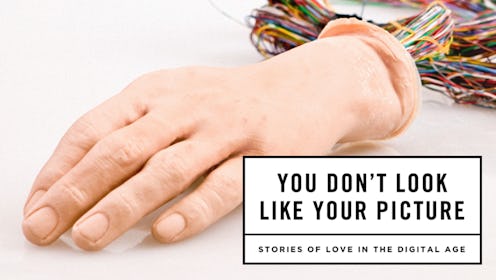Books
'You Don't Look Like Your Pictures' Probes Love

In this increasingly digital world, the way we connect with one another looks drastically different than it did 20, 10, or even just five years ago. And nowhere is this truer than for romantic interaction. There is now a whole high-tech romance industry, including a number of dating apps as well as apps for more casual romantic interactions. Well, this terrain, though it looks drastically different than the great 19th century tales of romance we cherish, is the subject DailyLit’s new literary collection, You Don't Look Like Your Picture, tackles.
The stories in this collection explore new developments in romance like texting and sexting, OkCupid dates, and personal photos that go viral on the Internet. And fittingly, this collection, which includes a short story by Pulitzer and National Book Award finalist Adam Haslett, is delivered in a very digital age manner.
Drawing upon an old method of publishing, serialization, DailyLit seeks to package literature in a way that makes it more convenient for modern life. The online service sends short installments straight to your inbox, so instead of checking your Twitter or myriad other social media apps in a free moment, you can read a great work of literature.
Jennifer 8. Lee and Yael Goldstein Love conceived of this project after they heard numerous people complain that they just didn’t have time to read fiction anymore.
“We'd see these same people on Facebook or Instagram and we'd think, ‘But you do have the time!’" Love, co-founder of DailyLit, wrote in an email, “and we realized that the problem wasn't that people don't have time to read fiction; it's that fiction isn't currently presented in a way that seems to fit the kind of free time people have.”
DailyLit offers a broad selection of literature, both classic and contemporary, but You Don’t Look Like Your Picture is its first original short story collection. The organization hopes that its new model of publishing will latch onto a bright spot in an otherwise troubled literary market, with the sales of physical books decreasing but e-book sales on the rise. And the serialization model, which was once used to publish great works of literature, like those by Charles Dickens and Henry James, may have benefits for authors, too, allowing them to test their reading audience and market before publishing a large, completed work.
“We are eager to believe that maybe all these changes will actually be for the better. That maybe there's a Golden Age of Fiction right around the corner, spurred on by technology,” Love wrote. “It's this willingness to believe in, or at least work for, a Golden Age around the corner that I've found in pretty much every writer I have approached, whether just starting out or already a brand name.”